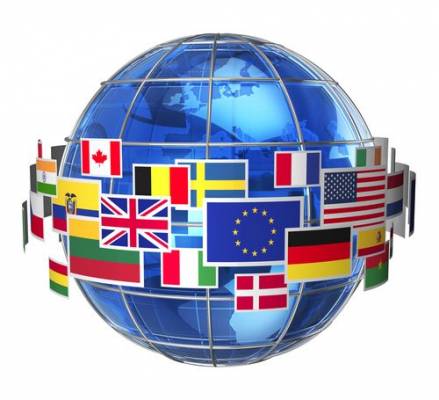In the interconnected and dynamic world of business, the pursuit of global expansion has become a strategic imperative for organizations seeking sustained growth and relevance on the international stage. This article explores the complexities, benefits, and key strategies associated with global expansion, shedding light on the opportunities and challenges that businesses encounter as they venture beyond domestic borders.

The Imperative of Global Expansion
Unlocking New Markets
Global expansion offers businesses the prospect of tapping into new and diverse markets. The ability to reach a broader customer base provides opportunities for increased revenue, market share, and long-term sustainability. Companies that successfully navigate global markets gain a competitive edge and position themselves as industry leaders.
Diversification and Risk Mitigation
Expanding globally allows businesses to diversify their operations, reducing dependence on a single market or economic environment. This diversification not only spreads risk but also insulates companies from the impact of regional economic downturns or geopolitical uncertainties.
Strategies for Successful Global Expansion
Thorough Market Research and Analysis
Before embarking on global expansion, thorough market research and analysis are imperative. Understanding the cultural, economic, and regulatory nuances of target markets is essential for devising effective market entry strategies. Businesses must assess demand, competition, and potential challenges to make informed decisions.
Adaptation to Local Cultures and Preferences
Cultural sensitivity is a cornerstone of successful global expansion. Adapting products, services, and marketing strategies to align with local cultures and preferences enhances acceptance and fosters a positive brand image. Tailoring offerings to meet the specific needs of diverse consumer bases is key to gaining trust and loyalty.
Overcoming Challenges in Global Expansion
Navigating Regulatory Hurdles
Global expansion often involves navigating complex regulatory landscapes. Varying laws, trade policies, and compliance requirements demand meticulous planning and legal expertise. Businesses must invest in understanding and adhering to the regulatory frameworks of each target market to avoid legal pitfalls and operational disruptions.
Managing Currency Risks and Exchange Rate Volatility
Currency fluctuations pose inherent risks in global business operations. Businesses engaging in cross-border trade must implement risk management strategies to mitigate the impact of exchange rate volatility. This may include hedging strategies, diversifying currency holdings, or negotiating favorable payment terms.
Operational Considerations for Global Success
Establishing a Robust Supply Chain
Efficient and reliable supply chains are critical for global success. Businesses must establish robust logistics networks, optimize distribution channels, and ensure timely delivery of products or services. A well-organized supply chain enhances operational efficiency and customer satisfaction.
Investing in Local Talent and Partnerships
Building a strong local presence requires investing in local talent and forging strategic partnerships. Hiring individuals with cultural insights and market knowledge fosters effective communication and understanding. Collaborating with local businesses or establishing partnerships accelerates market entry and facilitates smoother operations.
Technology as a Facilitator of Global Expansion
Leveraging Digital Platforms for Market Access
In the digital age, global expansion is facilitated by leveraging online platforms for market access. E-commerce, digital marketing, and online communication tools break down geographical barriers, allowing businesses to reach and engage with international audiences seamlessly. A robust online presence is essential for global visibility.
Utilizing Data Analytics for Informed Decision-Making
Data analytics plays a pivotal role in global expansion by providing insights into consumer behavior, market trends, and performance metrics. Businesses can harness data to refine strategies, optimize marketing campaigns, and make informed decisions that align with the dynamics of different global markets.
Case Studies: Global Expansion Success Stories
IKEA: Tailoring Products to Local Tastes
IKEA, the Swedish furniture giant, successfully expanded globally by adapting its products to local tastes and preferences. By maintaining a balance between global branding and local customization, IKEA has established a strong global presence, resonating with consumers worldwide.
Google: Adapting Search Algorithms for Regional Relevance
Google’s global expansion success is rooted in its ability to adapt its search algorithms to different languages and cultural contexts. By providing localized search results, Google has become the go-to search engine across diverse regions, fostering global user engagement.
Conclusion: The Path to Global Resilience
In conclusion, global expansion is a journey laden with opportunities and challenges. Businesses that navigate this path with strategic foresight, cultural sensitivity, and a commitment to adaptation are well-positioned for sustained growth and global resilience. As the business landscape continues to evolve, the ability to seize opportunities in diverse markets will be a defining factor for organizations aspiring to thrive on the global stage.
Read More : Navigating Market Dynamics: A Strategic Imperative for Business Success








